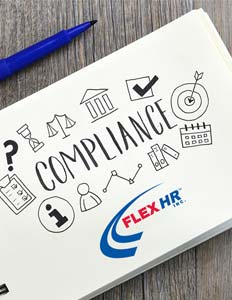Building Compliance Into Your Company Culture
Compliance is an integral part of an organization, regardless of whether you are overseeing a global enterprise or running a small business. Compliance helps companies to avoid white collar-crime, corruption, ethics issues, and other pitfalls. It’s also essential when it comes to tax issues, federal and local laws, industry requirements, workplace safety, employee rights, and data management.
Although you can create a team to oversee all the compliance requirements, you can’t leave all the workload to them. All members of your company must understand compliance, know why it matters, and act accordingly. This means developing a culture that fosters compliance throughout the organization. Here’s how to create a positive compliance culture.
Start With Leadership
If leaders in your organization aren’t keen on compliance, don’t expect employees to adopt a positive culture. Without the active support of the top guys, compliance policies will only exist on paper. Jim Cichanski, founder of Flex HR, Inc., the largest HR consulting and outsourcing firm in the Southeast, notes “a very simple way to define the culture in your company is through the way employees perceive how things are done internally, not how policy is stated in writing.” A company’s executives, board members, and senior management need to actively take charge of the compliance efforts. They need to set the tone, uphold the values, and be accountable to the compliance endeavor.
The top leadership should be in charge of developing, implementing, and overseeing the compliance program and ensure its effective enough. Managers should be well-versed in the conduct of their employees, to develop a more transparent culture. If you don’t know how your employees are conducting themselves, you can’t tell whether you are making any meaningful progress.
Provide Ongoing Compliance Training For All Staff
You may have the best policies and measures to achieve a compliance culture, but without the right training, your employees will expose you to risks. To foster a strong and positive behavior towards compliance, provide training and testing to all staff members. This includes in-house employees, remote teams, part-time, and contract workers. Your onboarding programs should also have a section on compliance, to inform recruits what is required of them and instill the right values in them.
The compliance training should touch on understanding all compliance requirements, recognizing threats, how to respond to risks, who to report to, how to avoid missteps, and the repercussions one will face if caught flouting the rules. Some compliance frameworks such as SOC 2, which focuses on safeguarding customer data, can only be adequately observed if your staff are well trained. Without the right knowledge, employees may inadvertently take actions that render you non-compliant. Good consulting that drives the behavior of your workforce is the best approach.
Keep Up With Compliance Requirements
As technology evolves and new trends emerge, compliance requirements change. To remain compliant at all times, you need to stay ahead of the latest developments. You should actively track the changes happening through reaching out to leaders in your industry, consulting compliance specialists, and following compliance news. Whenever regulations are amended, make sure you incorporate those changes into your program and retrain your staff.
Create An Incentives Program
Most employees are less motivated when it comes to compliance programs. Instead of making compliance look like a burden to them, you can use rewards to encourage them to be more focused on the program. People react more positively when there is a reward, and an incentive can go a long way to helping you create a compliance culture. You can create a rewards scheme for employees who consistently demonstrate compliant behavior. The rewards can include bonuses and promotions. To avoid damaging the credibility of the incentive program, the rewards should be issued fairly across the organization.
Enforce The Culture
If rules aren’t enforced, they will be broken. To make sure employees take compliance seriously, create protocols for internal investigations and disciplinary action. This procedure will help you respond quickly whenever a compliance breach is detected. Disciplining individuals will help prevent future breaches and send a message to everyone that misconduct won’t be tolerated. You should form a team that will be in charge of investigating any issues. The investigation and any consequent will be noticed throughout the organization.
Increase Your Investment In Compliance
If you have been complying with different requirements just for the sake of it, it’s time to put more emphasis on compliance. Think of how you could end up with expensive lawsuits, penalties, a ruined reputation, or a prison term due to negligence, and you’ll see it’s worth investing in compliance. Invest in the latest technology to track compliance changes, assess risks, and monitor and audit how you are adhering to the different regulations. Also, allocate resources to boost awareness across the organization.
Bottom Line
Most companies found to be non-compliant have policies and training designed to address the same compliance issues. However; they fail to make compliance part of their business, or perhaps leadership does not see the value in this. To avoid landing in trouble, you should think of compliance as playing by the rules. If you want to secure the future of your organization, start building a culture of compliance today. Flex HR will outline a strategy to safeguard your company’s compliance structure.
Flex HR serves almost every industry in all 50 states, including Georgia, Florida, California, North Carolina, and Tennessee, as well as Puerto Rico, the Virgin Islands, Canada and Europe supporting U.S. subsidiaries of foreign owned companies.
Our Flex HR specialists serve thousands of different organizations, in countless industries, varying from a few to over 75,000 employees.
To Learn More about Flex HR Contact Us.

